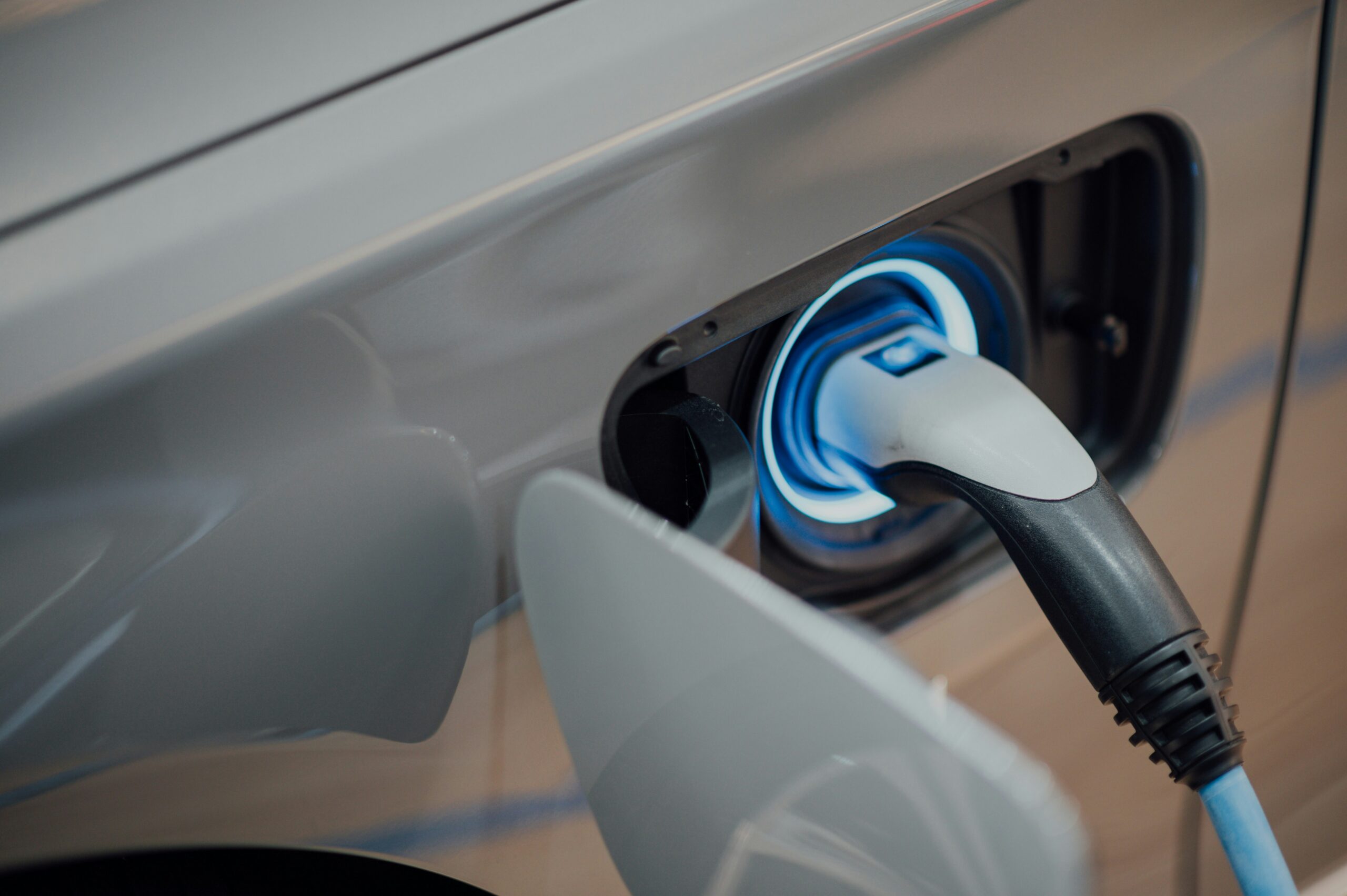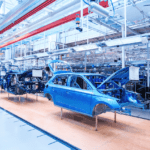

The Evolution of the Pakistani Automotive Sector
One of the major technological advancements in the Pakistani automotive sector is the introduction of electric vehicles (EVs). EVs are vehicles that are powered by electricity rather than traditional fossil fuels. This shift towards electric mobility has been driven by the increasing concerns over environmental pollution and the need to reduce dependence on imported oil.
The government of Pakistan has taken several initiatives to promote the adoption of EVs in the country. One such initiative is the Electric Vehicle Policy, which was introduced in 2019. This policy provides incentives and tax breaks for the manufacturing and import of EVs, as well as the installation of charging infrastructure.
Another significant technological advancement in the automotive sector is the implementation of advanced safety features in vehicles. With the increasing number of road accidents in Pakistan, there has been a growing demand for safer vehicles. As a result, car manufacturers have started incorporating features such as anti-lock braking systems (ABS), airbags, and electronic stability control (ESC) in their vehicles.
Furthermore, the automotive sector in Pakistan has also witnessed advancements in the field of connectivity and infotainment. Many vehicles now come equipped with advanced infotainment systems that offer features such as GPS navigation, Bluetooth connectivity, and smartphone integration. These features not only enhance the driving experience but also provide convenience and entertainment to the passengers.
In addition to EVs, safety features, and connectivity, the Pakistani automotive sector has also seen advancements in the area of autonomous driving. Autonomous vehicles are vehicles that are capable of driving themselves without human intervention. While fully autonomous vehicles are not yet widely available in Pakistan, there have been developments in this field, with some car manufacturers testing autonomous driving technology on Pakistani roads.
Overall, the technological advancements in the Pakistani automotive sector have had a positive impact on the industry. These advancements have not only improved the overall quality and performance of vehicles but have also contributed to the growth and development of the sector. As technology continues to evolve, it is expected that the automotive sector in Pakistan will continue to witness further advancements in the coming years.
Introduction of Electronic Fuel Injection (EFI) Systems
One of the major technological advancements in the Pakistani automotive sector has been the introduction of Electronic Fuel Injection (EFI) systems. EFI systems have replaced the traditional carburetor systems in modern vehicles, offering better fuel efficiency, improved engine performance, and reduced emissions. These systems use sensors to monitor various parameters such as air intake, engine temperature, and throttle position, allowing for precise fuel delivery and optimal engine performance.
The adoption of EFI systems in the Pakistani automotive sector has not only improved the overall driving experience but has also contributed to a greener environment by reducing harmful emissions. With the implementation of EFI systems, vehicles are now able to achieve higher fuel efficiency, resulting in cost savings for vehicle owners and a reduced dependency on fossil fuels.
Additionally, the use of EFI systems has led to a significant reduction in harmful emissions. By precisely controlling the amount of fuel injected into the engine, EFI systems ensure that the fuel is burned more efficiently, resulting in fewer emissions being released into the atmosphere. This is particularly important in a country like Pakistan, where air pollution is a major concern.
Furthermore, EFI systems have revolutionized engine performance in Pakistani vehicles. With the ability to monitor and adjust various engine parameters in real-time, EFI systems ensure that the engine operates at its peak performance at all times. This not only improves acceleration and overall power delivery but also enhances the overall reliability and longevity of the engine.
In conclusion, the introduction of Electronic Fuel Injection (EFI) systems in the Pakistani automotive sector has brought about significant improvements in fuel efficiency, engine performance, and emissions reduction. With the adoption of EFI systems, vehicles are now able to achieve higher fuel efficiency, resulting in cost savings for vehicle owners and a reduced impact on the environment. Additionally, EFI systems have revolutionized engine performance, ensuring that vehicles operate at their peak performance at all times. Overall, EFI systems have played a crucial role in advancing the automotive industry in Pakistan and creating a more sustainable future for transportation.
Integration of Advanced Safety Features
With the increasing focus on road safety, the Pakistani automotive sector has witnessed the integration of advanced safety features in vehicles. These features aim to reduce the risk of accidents and protect both the driver and passengers. Some of the notable safety features that have become common in modern vehicles include:
- Anti-lock Braking System (ABS): ABS prevents the wheels from locking up during sudden braking, allowing the driver to maintain steering control and reducing the risk of skidding.
- Electronic Stability Control (ESC): ESC helps to prevent loss of control during cornering or evasive maneuvers by automatically applying brakes to individual wheels and adjusting engine power.
- Airbags: Airbags provide additional protection to the occupants in the event of a collision by cushioning the impact and reducing the risk of serious injuries.
- Collision Warning Systems: These systems use sensors and cameras to detect potential collisions and warn the driver through visual or auditory alerts, allowing them to take necessary evasive actions.
- Lane Departure Warning System (LDWS): LDWS alerts the driver when the vehicle unintentionally drifts out of its lane, helping to prevent accidents caused by drowsiness or distraction.
- Blind Spot Detection (BSD): BSD uses sensors to detect vehicles in the driver’s blind spots and provides visual or auditory alerts, reducing the risk of lane-change collisions.
- Adaptive Cruise Control (ACC): ACC uses radar or laser sensors to maintain a safe distance from the vehicle ahead, automatically adjusting the speed to match the traffic flow.
- Automatic Emergency Braking (AEB): AEB systems detect imminent collisions and apply the brakes to prevent or mitigate the impact, reducing the severity of accidents.
The integration of these advanced safety features has not only made vehicles safer but has also raised awareness about the importance of road safety among the general public. As consumers become more educated about the benefits of these features, there is a growing demand for vehicles equipped with the latest safety technologies. In response to this demand, automakers are continuously working to improve and innovate safety features, ensuring that vehicles provide the highest level of protection for their occupants.
The introduction of hybrid and electric vehicles in the Pakistani automotive sector has not only provided consumers with more options but has also encouraged the adoption of sustainable transportation solutions. These vehicles have gained popularity due to their numerous advantages. One of the key benefits of hybrid and electric vehicles is their environmental friendliness. With lower emissions and a smaller carbon footprint, these vehicles contribute to a cleaner and greener environment. This is especially important in a country like Pakistan, where air pollution is a major concern in many urban areas. By opting for hybrid or electric vehicles, individuals can play their part in reducing air pollution and improving air quality.
Another advantage of hybrid and electric vehicles is their fuel efficiency. Hybrid vehicles combine the use of an internal combustion engine with an electric motor, allowing them to achieve better mileage and consume less fuel compared to conventional vehicles. This not only leads to cost savings for the vehicle owners but also reduces the country’s dependence on imported fossil fuels. With rising fuel prices, the fuel efficiency of hybrid and electric vehicles becomes even more appealing to consumers.
Speaking of cost savings, electric vehicles offer lower operating costs compared to conventional vehicles. They require less maintenance as they have fewer moving parts and do not require regular oil changes. Additionally, the cost of electricity is generally lower than that of gasoline or diesel, resulting in lower fuel costs for electric vehicle owners. Over time, these cost savings can add up significantly, making electric vehicles a financially attractive option for consumers.
Hybrid and electric vehicles are also at the forefront of technological innovation. With advancements in battery technology and electric drivetrains, these vehicles continue to improve in terms of performance and range. The development of more efficient and longer-lasting batteries has addressed one of the main concerns of potential buyers – range anxiety. As battery technology continues to evolve, we can expect even more improvements in the future, making hybrid and electric vehicles an even more compelling choice for consumers.
In conclusion, the introduction of hybrid and electric vehicles in the Pakistani automotive sector has brought about numerous benefits. From environmental friendliness to fuel efficiency, cost savings, and technological innovation, these vehicles offer a compelling alternative to traditional petrol or diesel-powered vehicles. As the infrastructure for charging stations continues to develop and the government provides incentives for electric vehicle adoption, it is likely that we will see an increase in the number of hybrid and electric vehicles on Pakistani roads in the coming years. This shift towards sustainable transportation solutions is not only beneficial for individuals but also for the country as a whole, as it contributes to a cleaner environment and reduced dependence on imported fossil fuels.
Integration of Advanced Infotainment Systems
Another notable technological advancement in the Pakistani automotive sector is the integration of advanced infotainment systems in vehicles. These systems combine entertainment, communication, and navigation features to enhance the overall driving experience. With the rapid advancement in technology, infotainment systems have become an essential component of modern vehicles, catering to the needs and preferences of tech-savvy consumers.
One of the key features commonly found in modern infotainment systems is touchscreen displays. These displays provide a user-friendly interface for accessing various functions of the infotainment system, such as music, navigation, and phone connectivity. The touchscreen technology allows drivers and passengers to easily navigate through menus and options, making it convenient and intuitive to control the system.
In addition to touchscreen displays, Bluetooth connectivity is another essential feature of advanced infotainment systems. Bluetooth technology allows users to connect their smartphones to the infotainment system wirelessly. This enables hands-free calling and audio streaming, ensuring that drivers can stay connected while keeping their hands on the wheel and eyes on the road. With Bluetooth connectivity, drivers can make and receive calls without the need for a physical connection, enhancing both safety and convenience.
Integrated GPS navigation systems are also a prominent feature of advanced infotainment systems. These systems provide real-time directions and traffic updates, making it easier for drivers to navigate unfamiliar routes. With accurate and up-to-date mapping data, drivers can rely on their infotainment system to guide them to their destination efficiently. The integration of GPS navigation eliminates the need for separate navigation devices and ensures that drivers can stay on track without any hassle.
Furthermore, the integration of smartphones with infotainment systems has revolutionized the driving experience. Modern infotainment systems offer seamless integration with smartphones, allowing users to access their favorite apps and features directly from the vehicle’s display. Whether it’s listening to music from streaming services, accessing social media, or using navigation apps, drivers can conveniently control their smartphones through the infotainment system, minimizing distractions and maximizing convenience.
The integration of advanced infotainment systems has not only made driving more enjoyable but has also improved convenience and connectivity for drivers and passengers. With a wide range of features and functionalities, these systems cater to the diverse needs and preferences of users, ensuring a personalized and immersive in-car experience. As technology continues to evolve, it is expected that infotainment systems will become even more advanced, offering enhanced connectivity, entertainment, and safety features to further enhance the driving experience.
The Future of the Pakistani Automotive Sector
The technological advancements in the Pakistani automotive sector are expected to continue in the future. With the increasing demand for cleaner and more sustainable transportation solutions, we can expect to see further developments in electric and hybrid vehicles. Additionally, advancements in autonomous driving technology and connected car systems are also likely to shape the future of the automotive sector in Pakistan.
As the automotive industry evolves, it is crucial for manufacturers, policymakers, and consumers to embrace these technological advancements and work together to create a safer, greener, and more technologically advanced automotive sector in Pakistan.
One area that holds great potential for the future of the Pakistani automotive sector is electric vehicles (EVs). As the world shifts towards a more sustainable future, the demand for EVs is expected to rise significantly. In Pakistan, the government has already taken steps to promote the adoption of EVs by offering incentives such as tax exemptions and subsidies. This has led to an increase in the number of EVs on the roads, and it is expected that this trend will continue in the coming years.
Another area of focus for the future of the Pakistani automotive sector is autonomous driving technology. With advancements in artificial intelligence and machine learning, autonomous vehicles are becoming a reality. These vehicles have the potential to revolutionize the way we commute, making transportation safer and more efficient. In Pakistan, autonomous vehicles could help alleviate traffic congestion, reduce accidents, and improve overall transportation efficiency.
Connected car systems are also expected to play a significant role in shaping the future of the automotive sector in Pakistan. These systems enable vehicles to communicate with each other and with the surrounding infrastructure, providing real-time information on road conditions, traffic congestion, and weather updates. This connectivity can enhance the driving experience, improve safety, and optimize transportation routes.
However, for the future of the Pakistani automotive sector to truly flourish, collaboration between all stakeholders is essential. Manufacturers need to invest in research and development to create innovative and sustainable vehicles. Policymakers need to create a supportive regulatory framework that encourages the adoption of new technologies. Consumers need to be open to embracing these advancements and making informed choices when purchasing vehicles.
In conclusion, the future of the Pakistani automotive sector holds great promise. With advancements in electric vehicles, autonomous driving technology, and connected car systems, the industry is poised for significant growth. By embracing these technological advancements and working together, Pakistan can create a safer, greener, and more technologically advanced automotive sector that benefits both the economy and the environment.
Add a comment Cancel reply
Categories
- automobile (1)
- Automotive (32)
- Automotive Industry (2)
- Automotive Safety (1)
- Car Brands (1)
- Car Buying (1)
- Car Reviews (1)
- Clean Energy (1)
- Marketing (1)
- Motorcycles (1)
- Trade Agreements (1)
- Transport & Mobility (1)
- Transportation (2)
- Travel (2)
Recent Posts
About us











